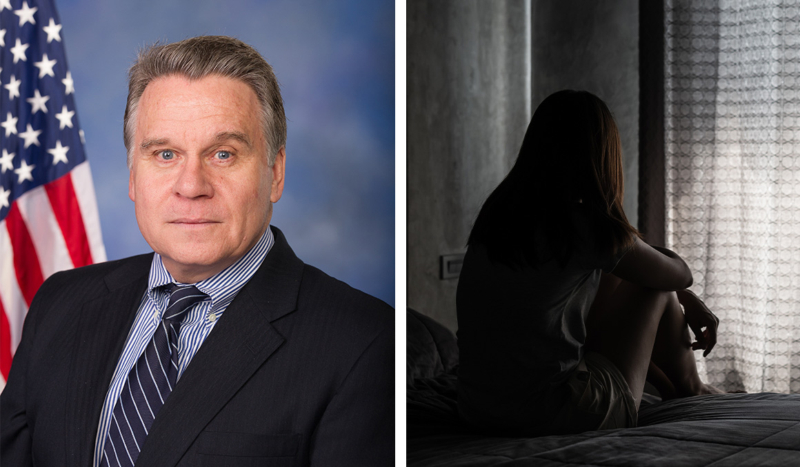
Representative Chris Smith / United States Congress (Left), Adobe Stock (Right)
A pro-life congressman recently explained the goals and policies encompassed in new anti-human trafficking legislation that has advanced through the US House of Representatives and said he’s committed to ending what he called “modern-day slavery.”
Rep. Chris Smith, R-N.J., stated in a news release that the House Foreign Affairs Committee last week passed his legislation, the Frederick Douglass Trafficking Victims Prevention and Protection Reauthorization Act (FD TVPRA) of 2025. According to the release, the legislation builds upon and reauthorizes the Trafficking Victims Protection Act (TVPA) of 2000, which Smith wrote at the time.
Smith said that the FD TVPRA will enhance “existing anti-human trafficking provisions, strengthen investigations, and combat the growing threats of child exploitation and online abuse.” He added that the TVPA has already been responsible for convicting more than 2,225 human traffickers and freeing thousands of survivors.
In addition to bolstering existing law, Smith’s 2025 legislation will build up several federal agencies’ anti-human trafficking programs and fund the Angel Watch Center, a federal operation that alerts foreign law enforcement partners if a convicted child predator is traveling to their country. The bill will also promote training and anti-human trafficking strategies for teachers and students in K-12 schools.
According to the release, the bill contains provisions to strengthen awareness of human trafficking across the globe by encouraging communication with other governments about their efforts to stop trafficking. It also would reauthorize the Trafficking in Persons Report, which ranks countries on their anti-human trafficking initiatives and offers strategies for other countries to reduce trafficking.
Smith commended human trafficking survivors for their strength in raising awareness and fighting for policies to end the practice. He added that July 30, World Day Against Trafficking in Persons, was an opportunity to “recommit our nations and ourselves to greater awareness, enhanced coordination with law enforcement, and continued reliable resources so that we can elevate the urgency in addressing this grave human rights abuse.”
“The U.S. government must never be complacent in the fight against human trafficking,” Smith added. “Accountability, reform, and steadfast enforcement of anti-trafficking laws must be our constant goal.”

